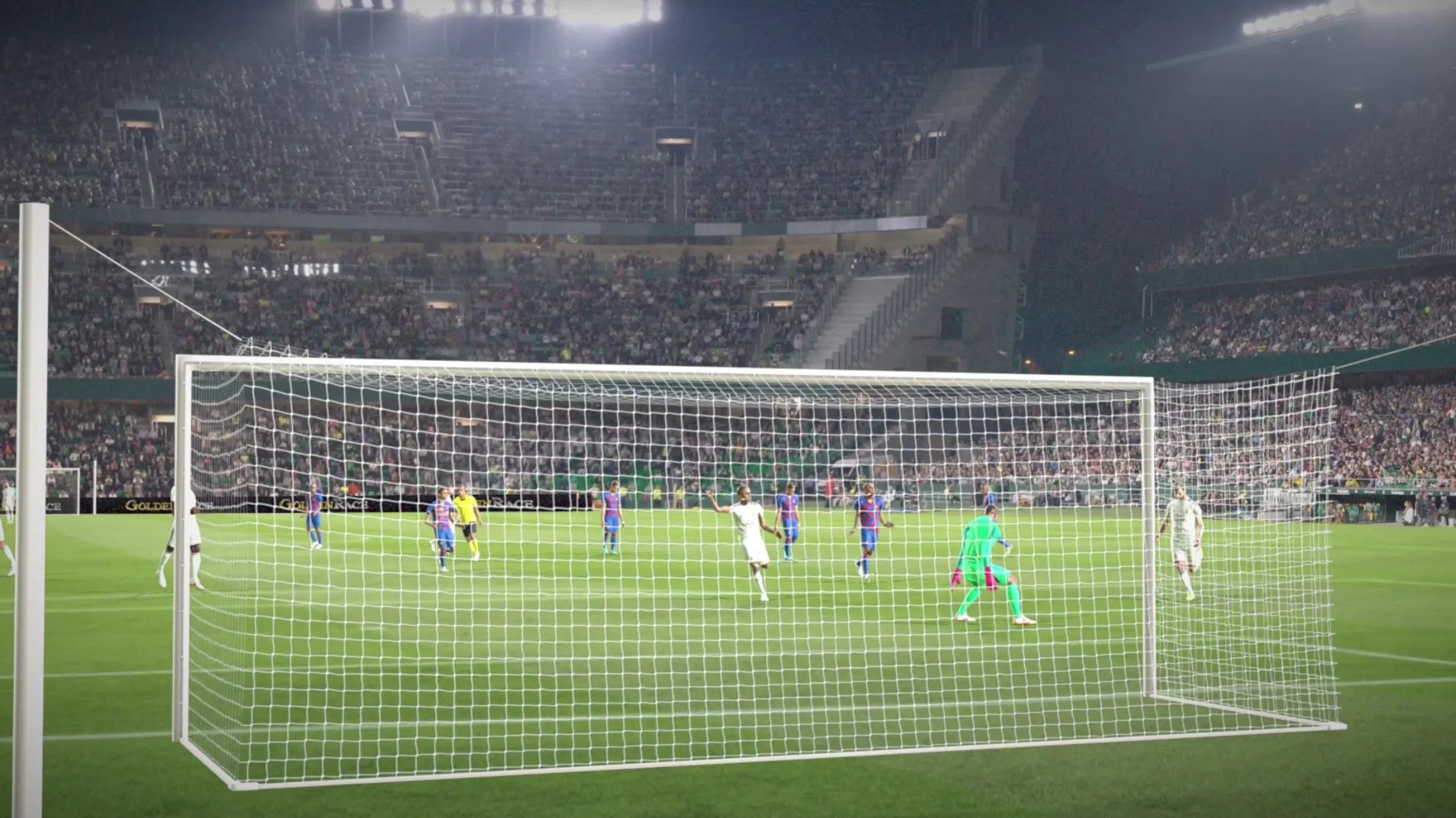Virtual football, also known as virtual soccer or e-soccer, has become increasingly popular in recent years. It is a digital version of the traditional game of football, where computer-generated matches are played between virtual teams. This form of gaming has gained a huge following worldwide, with millions of players and viewers tuning in to watch and participate in virtual football tournaments.
Virtual football combines the excitement and thrill of real-life football with advanced technology and creative gameplay. It offers an immersive experience for players, allowing them to control every aspect of their team’s performance and strategy. In this article, we will explore the world of virtual football, its evolution, and its impact on the gaming industry. So let’s kick off!
History and Evolution of Virtual Football

Virtual football has come a long way since its inception in the 1980s. The first-ever virtual football game was introduced in 1980 by Atari, called “Pele’s Championship Soccer.” It was a simple 2D game where players had limited control over their team’s movements and strategies. However, it laid the foundation for future virtual football games.
In the 1990s, with the advancement of technology, virtual football games started to gain popularity among gamers. With the introduction of 3D graphics and improved gameplay, games like FIFA Soccer and Pro Evolution Soccer (PES) became fan favorites. These games offered more realistic gameplay, with detailed player movements, tactics, and physics.
The early 2000s saw the rise of online gaming, which revolutionized the virtual football industry. Players could now compete against each other from different parts of the world, making it a global phenomenon. With the emergence of online platforms like Xbox Live and PlayStation Network, virtual football games became more competitive and engaging, attracting a larger audience.
In recent years, advancements in technology have taken virtual football to a whole new level. With the introduction of virtual reality (VR) and augmented reality (AR), players can now experience the game in a more realistic and immersive manner. Virtual football has evolved from a simple 2D game to a complex and sophisticated simulation, offering an unparalleled gaming experience.
Impact of Virtual Football on the Gaming Industry
Virtual football has had a significant impact on the gaming industry, both in terms of revenue and innovation. According to a report by Newzoo, the global e-sports market is expected to generate $1.1 billion in revenue by 2020, with the majority coming from virtual sports games like FIFA and PES.
The popularity of virtual football has also led to the development of new technologies and gaming platforms. With the rise of mobile gaming, virtual football games are now available on smartphones and tablets, making it accessible to a wider audience. The integration of VR and AR technology has opened up new possibilities for the future of virtual football, making it a potential growth area for the gaming industry.
Moreover, virtual football has also paved the way for professional gaming or e-sports, where players compete in organized tournaments for cash prizes. This has created opportunities for gamers to turn their passion into a career, with some professional e-sport players earning six-figure salaries. The growing popularity of virtual football has also attracted big brands and sponsors, further propelling its growth in the gaming industry.
How Does Virtual Football Work?
Virtual football games use advanced algorithms and artificial intelligence (AI) to simulate real-life football matches. These games have a massive database of teams, players, and match statistics, making them as close to real-life football as possible. The games also take into account variables like weather conditions, player injuries, and team strategies, providing an immersive and realistic experience for players.
The gameplay of virtual football is similar to that of traditional football. Players can control all aspects of their team’s performance, such as player movements, passing, shooting, and tactics. The games also offer different game modes and customization options, allowing players to create their own teams, leagues, and tournaments.
The matches are played in real-time or can be simulated, depending on the player’s preferences. In online gaming, players can compete against each other, while in offline mode, players can play against the computer or participate in single-player campaigns. The games also offer commentary and graphics, making the experience even more engaging and lifelike.
Virtual Football vs. Real-Life Football

One of the most debated topics in the world of virtual football is its comparison to real-life football. While both have their own unique appeal, they are fundamentally different in many ways.
In terms of gameplay, virtual football allows players to have complete control over their team’s performance, from player movements to tactics. Whereas in real-life football, players have to rely on their physical abilities and decision-making skills to win a match. Virtual football offers a more fast-paced and action-packed experience, whereas real-life football has a slower, more strategic approach.
Moreover, virtual football eliminates factors like fatigue and injuries, which can significantly affect a team’s performance in real-life football. While it does take into account variables like weather conditions, it cannot replicate the physical demands and unpredictability of a real match. Therefore, virtual football should be seen as a form of entertainment rather than a direct replacement for real-life football.
Pros and Cons of Virtual Football
As with any form of gaming, virtual football has its own set of pros and cons. Let’s take a closer look at them:
Pros:
- Immersive Experience: Virtual football offers a detailed and realistic simulation of the game, providing players with an immersive and engaging experience.
- Accessibility: With the availability of virtual football games on various platforms, it is easily accessible to a wider audience, including those who may not have access to traditional football facilities.
- Strategic Thinking: Virtual football requires players to think strategically and make quick decisions, enhancing their problem-solving skills.
- Global Community: With online gaming, virtual football has created a global community of gamers, bringing people from different parts of the world together through their love for the game.
Cons:
- Unrealistic Expectations: The fast-paced and action-packed nature of virtual football can create unrealistic expectations among players, who may expect similar results in real-life football.
- Lack of Physical Activity: Virtual football does not require physical activity, which can lead to a sedentary lifestyle if played excessively.
- Cost: Some virtual football games require players to purchase additional features or pay for online subscriptions, making it an expensive hobby for some.
- Online Addiction: Like any other online game, virtual football has the potential to become addictive, leading to excessive gaming and neglect of real-life responsibilities.
Virtual Football Tournaments and Leagues

Virtual football has gained immense popularity in recent years, with major tournaments and leagues being organized worldwide. These tournaments offer a platform for players to compete against each other and showcase their skills on a global stage. Here are some of the major virtual football tournaments and leagues:
- FIFA eWorld Cup: Organized by FIFA, the eWorld Cup is the most prestigious virtual football tournament, where players compete to be crowned the best virtual football player in the world.
- PES League: Konami’s PES League is another major tournament that offers cash prizes to winners and attracts top players from around the globe.
- eFootball.Pro: Launched in 2018, eFootball.Pro is an international league, co-founded by FC Barcelona star Gerard Pique, that brings together professional e-sports clubs to compete in virtual football matches.
- Premier League e-sports: In partnership with EA Sports, the English Premier League launched its official e-sports tournament in 2016, featuring players representing Premier League clubs.
- Virtual La Liga: Spanish football league, La Liga, also has its own virtual football tournament, where players can compete to represent their favorite La Liga club.
Future of Virtual Football
The future of virtual football looks promising, with ongoing developments in technology and increasing popularity among gamers. With the integration of VR and AR, virtual football is expected to become even more realistic and immersive in the coming years. It will also attract a larger audience, including those who do not have an interest in traditional football.
Moreover, as e-sports continue to grow, we can expect virtual football to become a major player in the industry, with more professional leagues and tournaments being organized. The evolution of virtual football could also lead to the development of new games that combine different sports, offering a unique and exciting experience for players.
Conclusion
Virtual football has come a long way since its early days and has established itself as a popular form of gaming and entertainment. Its constant evolution and advancements in technology have attracted a large and diverse audience, making it a lucrative market for the gaming industry. As we look towards the future, it is safe to say that virtual football will continue to grow and evolve, providing players with an unparalleled gaming experience. However, it is essential to maintain a balance between online gaming and real-life responsibilities, and to remember that virtual football should be seen as a form of entertainment rather than a direct replacement for the beautiful game of football.


